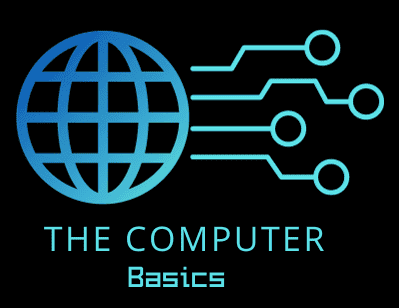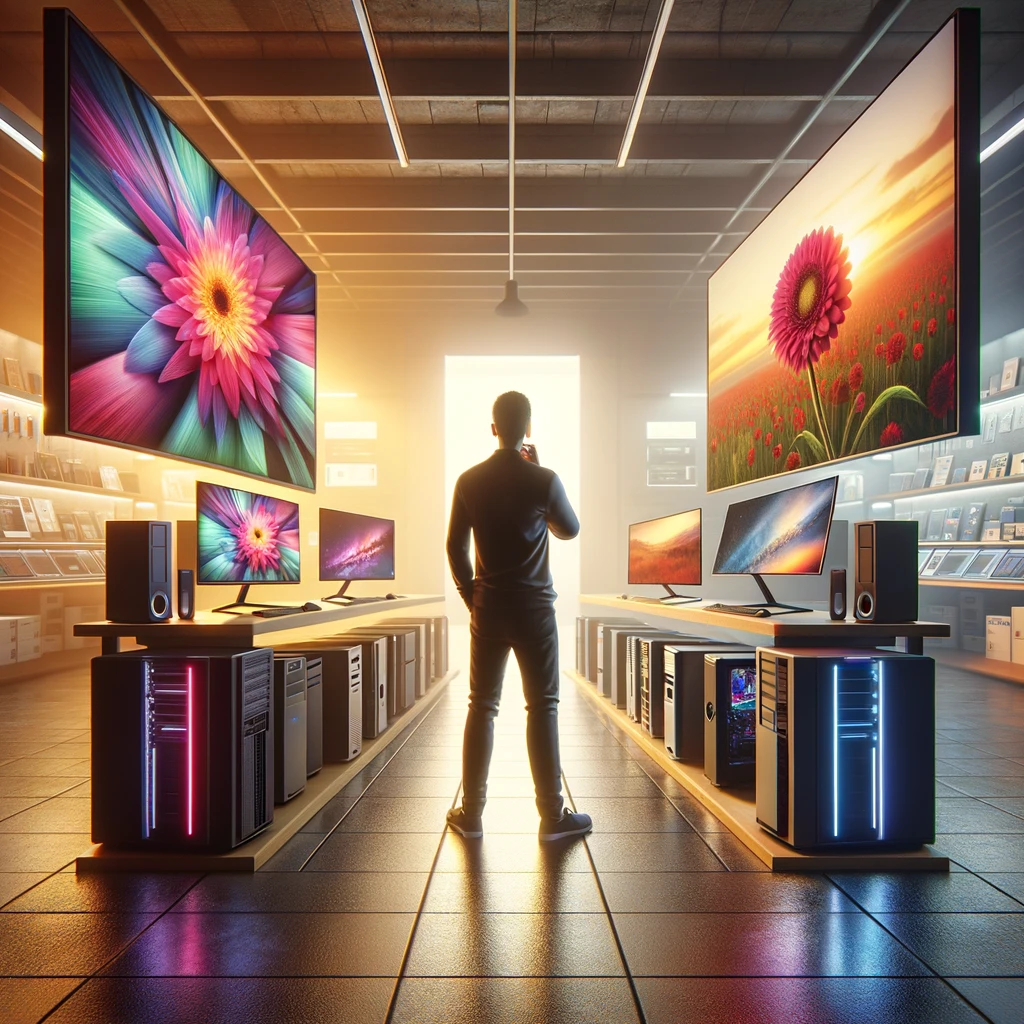Deciding on your first computer can feel like navigating a digital jungle, but it boils down to matching your needs and budget with the right hardware.
Whether you’re aiming to conquer the latest games, slice through video editing projects, or simply keep tabs on emails and your social media feeds, understanding the role of a computer’s processor and performance is key.
Think of the processor as the brain of your operation—you’ll want one that’s sharp enough for your tasks without overpaying for horsepower you won’t use.

If gaming is your jam, a robust graphics card will keep those visuals crisp and fluid, transforming your experience from meh to mesmerizing.
Meanwhile, for video editing, don’t skimp on the processor or the graphics card, as these are the creative lifelines that will save you time rendering and previewing your masterpieces.
But remember—while dreaming big is great, staying grounded with a budget will prevent tech-fueled heartache.
Balancing needs with costs is the dance of the savvy shopper, so be ready to boogie with the best of them as you embark on your quest for the perfect computer companion.
Understanding Your Computing Needs

Before you jump into the market, let’s pinpoint what you actually need from your computer.
Whether you’re editing videos, gaming, or just browsing the web, matching your needs to the right machine is crucial.
Desktop vs. Laptop: Pros and Cons
Desktops: They’re typically more powerful and easier to upgrade. If you’re into multitasking with heavy software or PC games, a desktop can handle much more with its robust internals. Plus, if you prefer using Android apps, emulators on desktops are often more reliable.
Pros:
- Better for multifunctional use (gaming, video production)
- Easier to upgrade parts
Cons:
- Not portable
- Usually requires more space
Laptops: Ideal for working on the go, laptops are portable and have built-in batteries. They cater well to basic needs like web browsing, email, and document editing but can also pack a punch for more demanding tasks like video production, depending on the model.
Pros:
- Portable
- Integrated battery
Cons:
- Less powerful (generally)
- Harder to upgrade
Specialized Computing: Gaming and Editing
Gaming PC: Look for high-end graphics cards, plenty of RAM, and fast processors. Gaming PCs offer top performance for PC games but also serve well for other intense tasks like video production.
Video Production: You’ll need a strong CPU, lots of storage, and a decent amount of RAM. High-resolution displays also help with editing precision.
Portability and Battery Life Considerations
When you’re often on the move, a laptop or even a tablet can be your best friend. Here’s what to keep in mind:
Portability:
- Laptops generally provide a good balance between power and portability.
- Tablets are ultra-portable, and suitable for light tasks like reading and browsing.
Battery Life:
- Laptops vary in battery life; some can last for over 10 hours.
- Tablets can often last even longer and are great for entertainment and light work tasks on long trips.
Decoding Computer Specs
When you’re shopping for your first computer, understanding the specifications can feel like deciphering a secret code. But don’t worry, you’re about to crack it. Let’s get to grips with what all those numbers and acronyms actually mean for you.
Processor Types and What They Mean
The processor, or CPU (Central Processing Unit), is your computer’s brain.
Cores are like lanes in a highway—the more you have, the more information can be processed at once.
For basic tasks, a dual-core processor will do just fine. But if you’re aiming to multitask or use demanding applications, consider a quad-core or higher, like the popular Intel i5 or i7 series, to keep things smooth and responsive.
Memory and Storage Solutions
RAM (Random Access Memory) is your computer’s short-term memory. It’s where your computer keeps data it needs to access quickly.
Think of it like a desk, where the bigger it is, the more papers (applications) you can have open and work on simultaneously. Aim for at least 8GB of RAM; 16GB is even better for heavy users.
Now, let’s talk storage. This is your computer’s long-term memory.
Traditional hard drives (HDDs) offer more space for less money, while solid-state drives (SSDs) are much faster, letting your system boot up in seconds.
For a balance, you might find a computer with both—an SSD for your operating system and frequently used apps and a larger HDD for everything else.
Graphics and Display Technologies
Your computer’s graphics card determines how well it can handle images, video, and gaming.
An integrated graphics card shares your RAM and is fine for everyday use like watching videos or simple graphic design.
However, if you’re into gaming or video editing, a dedicated graphics card with its own memory is essential.
When considering display technologies, look for higher resolutions like 1080p or 4K for sharper images.
Also, keep an eye out for OLED or IPS panels which offer wide color ranges and better viewing angles.
Operating Systems and User Experience
When you’re picking out your first computer, the operating system (OS) is like your new home’s floor plan. It dictates how easily you’ll navigate through tasks and shapes your overall experience. Let’s break down the most popular options.
Comparing Windows, MacOS, and Other Platforms
Windows is like the Swiss Army knife of operating systems—it’s versatile and runs on a variety of hardware. If you’re into gaming or need compatibility with a wide array of software, it’s a solid choice.
PCs running Windows often come in a wide range of prices, so finding one that fits your budget is generally easier.
MacOS, Apple’s signature platform, offers a sleek user interface that’s tightly integrated with other Apple devices. If you’re a fan of iPhones or iPads, you’ll appreciate the seamless syncing with your computer.
Exploring beyond these giants, there’s Linux, the champion of open-source fans. It grants you more control to tweak your system but typically requires more technical knowledge.
Chrome OS, often found on budget-friendly Chromebooks, focuses on cloud-based applications—perfect if you love Google’s ecosystem and have a reliable internet connection.
The Impact of OS on Software and Performance
Your OS influences what software you can run and how well your machine performs certain tasks.
For instance, if you’re a creative professional, MacOs have traditionally been the go-to for powerful creative suites, although Windows has been catching up fast.
In contrast, Linux might feel limiting if you rely on specific mainstream software. But for programmers and developers, Linux offers a robust environment that can be customized to fit any need.
Budgeting for Your Computer

When planning to buy your first computer, your budget is a critical factor, but you don’t have to compromise on performance. With a strategic approach, you can find the right balance and snag a great deal.
How to Balance Cost and Performance
To get the best value for your money, you need to weigh your computing needs against the latest hardware.
For everyday tasks, budget laptops with an Intel Core i5 or an AMD Ryzen 5 processor offer a fantastic middle ground—solid performance at a reasonable price.
If you’re into gaming, aim for a higher budget to accommodate a powerful GPU that can handle the latest games.
-
- Prices fluctuate, so set your budget first.
- Identify your performance needs: are you editing videos or just browsing the web?
- Check the specs: even budget models now boast impressive performance.
Finding the Best Deals and Discounts
To land the best deals:
-
Monitor sales cycles: tech often goes on sale during back-to-school seasons and holidays.
Look for refurbished models: these can offer powerful specs at a fraction of the cost.
Sign up for newsletters from reputable tech retailers to get early access to sales.
Compare prices across retailers, sometimes different stores offer exclusive deals.
Sign up for price alerts: Many online retailers will let you know when a price drops.
Use cashback offers and coupons: A little effort can lead to big savings.
Where to Shop and What to Look For

When you’re in the market for your first computer, it’s crucial to know where to look and what details matter most.
From selecting a reputable manufacturer to understanding how warranties work, getting savvy about these basics will set you up for a smart purchase.
Choosing the Right Computer Manufacturer
Your choice of manufacturer can significantly impact your computing experience.
Brands like HP, Dell, Acer, Asus, and Lenovo offer a range of products from entry-level to high-end.
Look for brands with good reviews, and check their standings on Consumer Reports for a deeper insight into reliability and customer satisfaction.
Shopping Online vs In-Store
Shopping online gives you access to a vast array of options. Retailers like Amazon and Newegg feature user reviews that can guide your choice. Meanwhile, eBay can be a source for deals, especially on refurbished models.
In contrast, shopping in-store at places like Best Buy lets you get a feel of the computer and often provides immediate assistance, which can be reassuring.
-
- Amazon: Broad selection, user reviews
- Newegg: Tech-focused, detailed specs
- eBay: Potential bargains, variety of conditions
- Best Buy: Hands-on experience, personal service
Understanding Warranties and Support
Warranties can be a safety net for your new device.
Most manufacturers like HP, Dell, and Lenovo offer a standard 1-year warranty but always read the fine print.
Some brands might include options for extended coverage which can be worth the extra buck.
Make sure you’re clear on what the warranty covers and how customer support can be reached in case you need help.
- Standard Warranty: Usually covers manufacturing defects for 1 year
- Extended Warranty: Additional cost, longer coverage period
- Support: Varies by manufacturer; check availability of chat, phone, or in-store support

